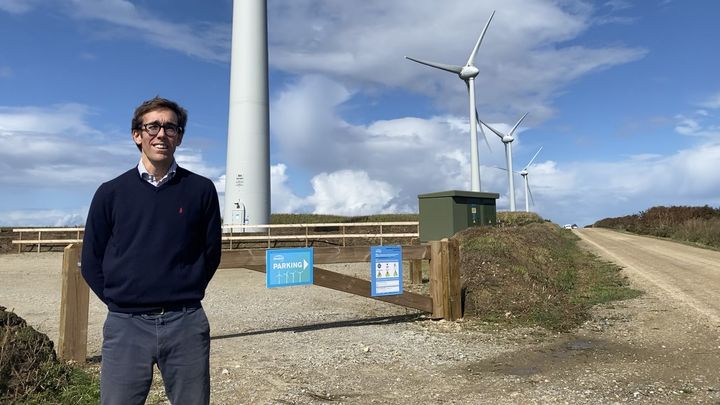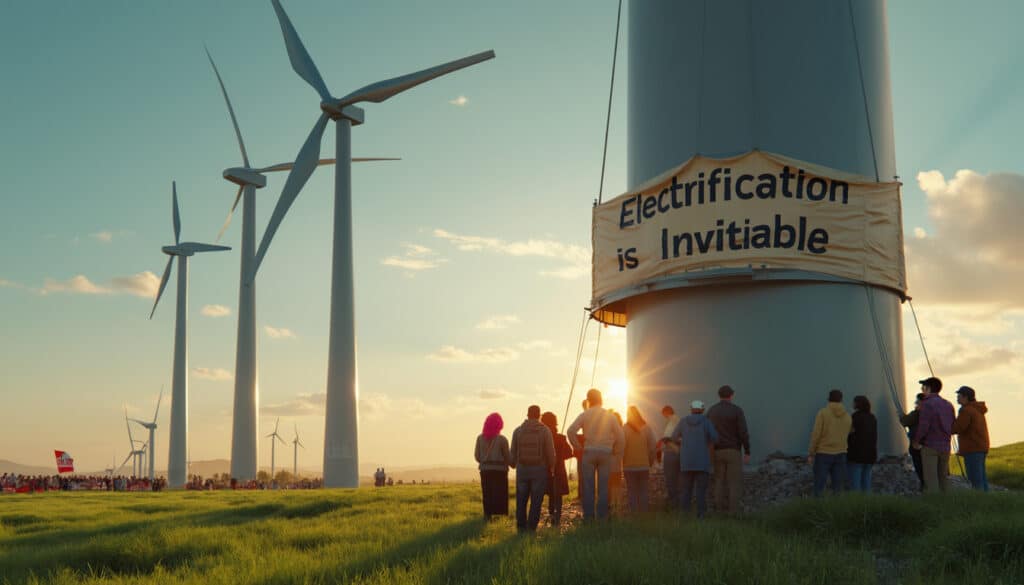In a context where environmental issues are more pressing than ever, the question of renewable energy is being posed acutely. Prince William, an emblematic figure of the British monarchy, may well be on the brink of a historic turning point. By reconsidering the ban on wind turbines imposed by his grandfather, the king, he is tackling not only deeply rooted traditions but also a crucial problem for our collective future. In the face of the threat of climate change and the need to diversify our energy sources, this decision could mark a real boost towards a sustainable and enlightened future. Does Prince William have the power to catalyze significant change in the UK’s energy policy? The eyes of the world are on him.
Prince William and the Reevaluation of Renewable Energies

Prince William, 42 years old, is considering a comprehensive review of the use of renewable energies on the 130,000 acres of the Duchy of Cornwall, a territory covering 20 counties in England. This initiative includes the establishment of solar farms, the extraction of geothermal energy, and the use of biomass, in addition to onshore wind turbines. The goal? To achieve large-scale renewable energy production and reduce carbon emissions to zero by 2032.
Imperative Climate Challenges
Alastair Martin, secretary and keeper of the archives of the duchy, emphasized the urgency of action in the face of the effects of climate change observed on the Duchy’s lands. He cites an increase in extreme weather events, rising sea temperatures, and prolonged drought as critical issues. These challenges have prompted the Duchy to invest in supporting farmers in reducing emissions.
Alignment with Government Efforts
William’s plans closely align with government initiatives aimed at multiplying the capacity of onshore and offshore wind turbines. The recent partnership between Crown Estate and Great British Energy supports this movement, with the ambition of achieving doubled wind capacity by 2030.
A Contradictory Legacy
King Charles, William’s father and former Prince of Wales, had blocked attempts to install wind turbines on the Duchy’s lands out of concern for preserving landscapes. However, despite his opposition to onshore wind turbines, he supports offshore turbines, which will increase his official income by 53% due to profits from the Crown Estate.
Strategic Reconsideration
Since William took the reins of the Duchy after King Charles ascended to the throne in September 2022, he has initiated a comprehensive reevaluation of their approach to wind turbines. It is clear that if they find a way to support wind turbines while respecting the aesthetics of the places, they will do so.
[#Eolien]?Les #éoliennes fonctionnent en moyenne entre 7⃣5⃣% et 9⃣5⃣% du temps selon l’@Ademe. En revanche, une #éolienne? produit en moyenne 2⃣5⃣% de la puissance maximale dont elle dispose : c'est ce qu’on appelle "le facteur de charge".https://t.co/42lep3QhwI
— Energie Matin (@EnergieMatin) July 5, 2024
Cc @NabilWakim pic.twitter.com/m1p1VGyU7a
Future of Biomethane Projects
One area where William has changed course is that of biomethane. The anaerobic plant in Poundbury, long supported by Charles, was sold for £13.6 million. Despite the recognized success of this initiative, Duchy officials decided it was time for more experienced operational management.
Ongoing Exploration of Renewable Energies
The Duchy continues to explore opportunities for renewable energy generation and storage throughout its estate. Increased awareness and ongoing investments demonstrate the seriousness with which this green transition is being approached, with William at the helm to lead this movement towards a more ecological future.
Ultimately, Prince William’s decision to revisit the ban on wind turbines imposed by King Charles could indeed represent a historic turning point, not only for the royal family but also for the UK’s energy policy.
Articles similaires
Thank you!
We will contact you soon.














